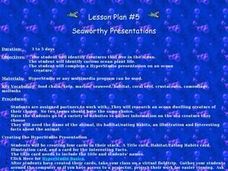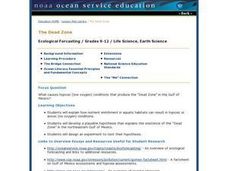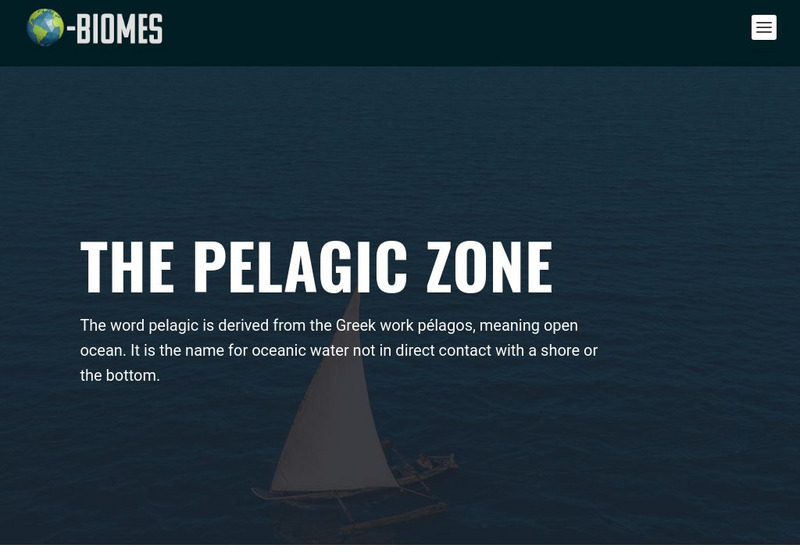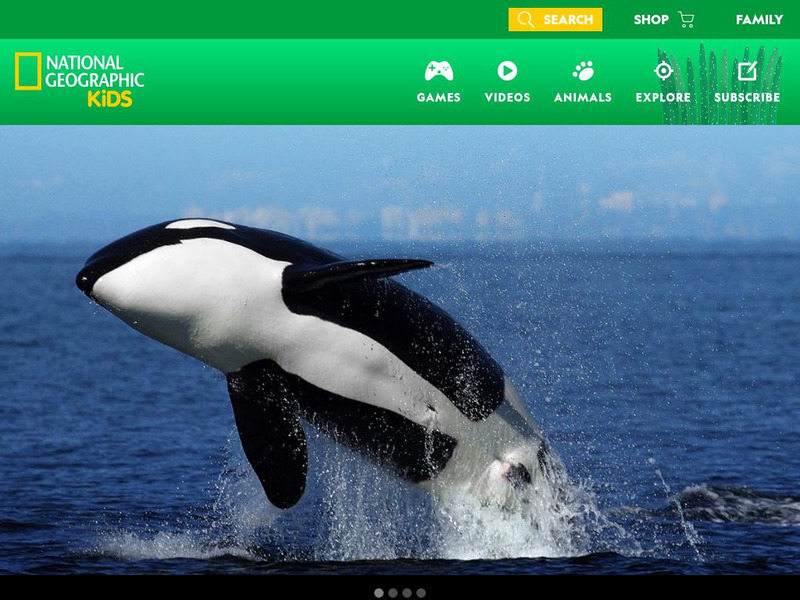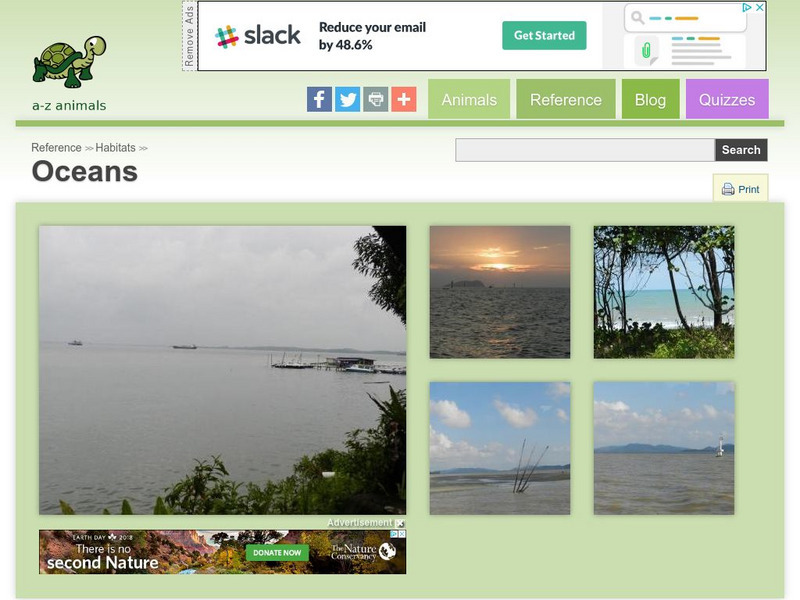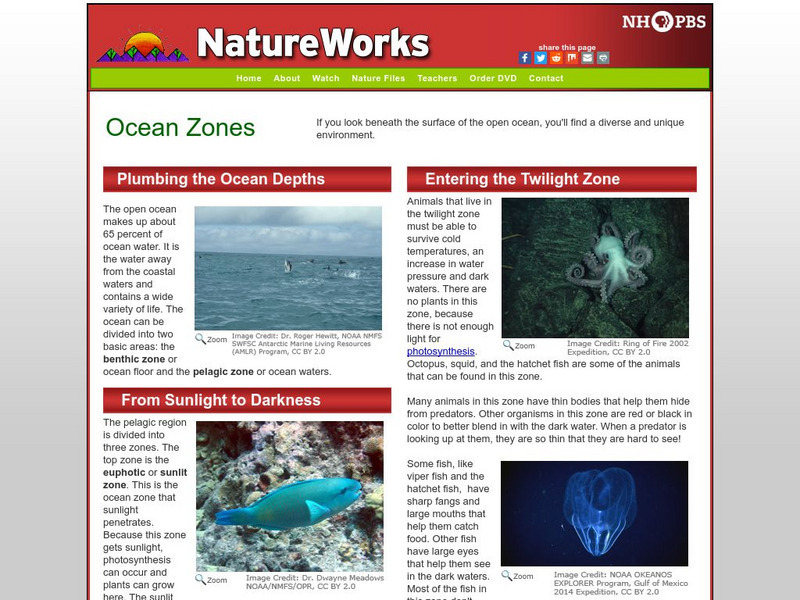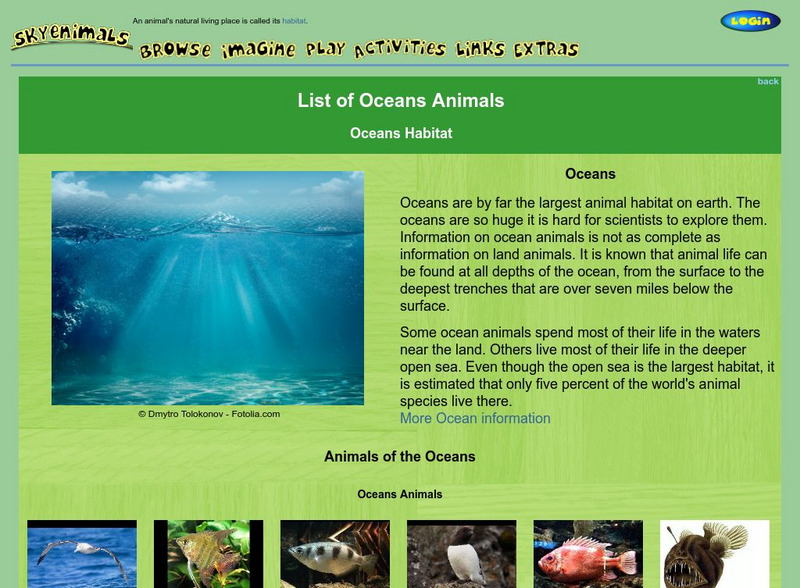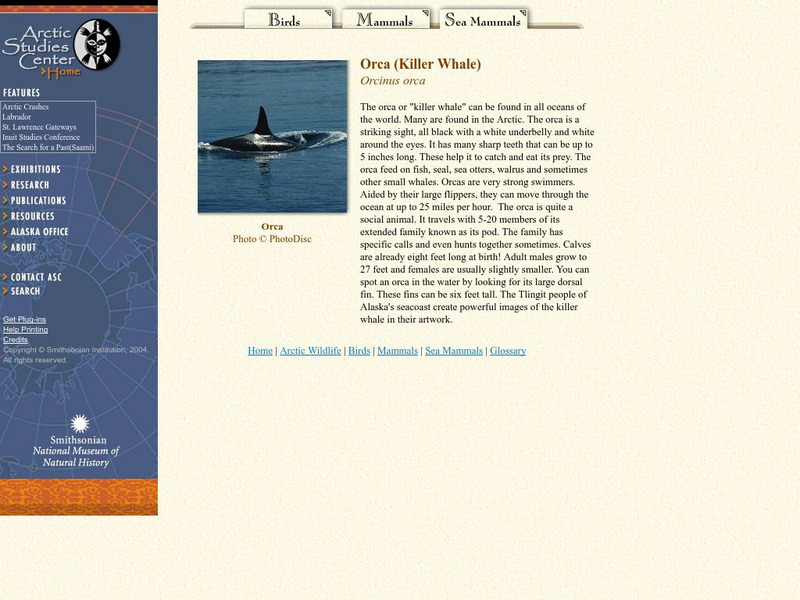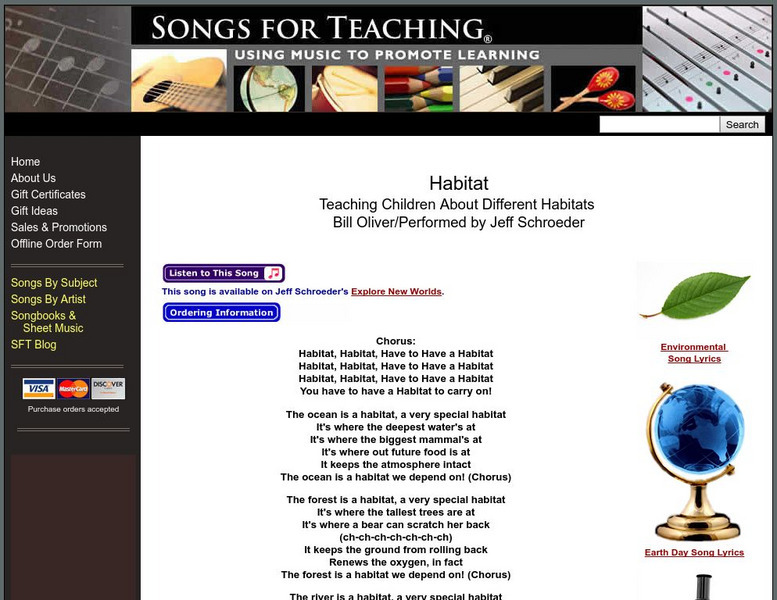Curated OER
Life in the Crystal Palace
Marine biologists research sea ice communities. Assign some groups to construct paper models of sea ice communities in winter, and some to construct models of them in summer. The lesson is simplistic, but the Internet resources provided...
Curated OER
Build a Polyp
Young scholars research coral polyps. In this coral polyps lesson, students discover the anatomy of a coral polyp and how they feed. Young scholars create an edible coral polyp model.
Curated OER
Seaworthy Presentations
First graders research ocean animals and plants on the web. For this ocean habitat lesson, 1st graders prepare a multimedia presentation. Students will work on their presentations in pairs and every group should have its own animals or...
Curated OER
The Magic School Bus Goes to Mussel Beach
Students investigate tides and create a model of an intertidal zone. In this hands-on marine science lesson plan based on a Magic School Bus book, the teacher leads students in a discussion about tides, then helps students model a tide...
Curated OER
Critters in the Classroom
Students investigate with sea urchins. In this ocean habitat lesson, students observe sea urchins and other ocean grazers. Students work with lab equipment to examine the anatomy of these creatures.
Curated OER
The Dead Zone in the Gulf of Mexico
Students explore hypoxic (low oxygen) conditions in the Gulf of Mexico. In this ocean habitat lesson, students hypothesis, design and implement an experiment to explain the existence of the "Dead Zone" in the Gulf of Mexico.
Curated OER
Sharks
Students research sharks, the food chain, and the water habitat shared by humans and sharks.
The Wild Classroom
The Wild Classroom: Biomes of the World: Oceanic Pelagic Biome
Learn about the oceanic pelagic ecosystem. Find out about plants, animals, adaptations, and conservation efforts.
National Geographic Kids
National Geographic Kids: Animals: Orcas
Orcas, more commonly known as killer whales, are featured on this multimedia site. These video clips, audio clips, photographs and facts will be very beneficial to students doing research projects.
Center for Educational Technologies
Nasa Classroom of the Future: Coral Reefs: Dissappearing Resource
Why are the reefs disappearing? Use this site to explore the science behind the issue. Useful at several grade levels.
Defenders of Wildlife
Defenders of Wildlife: Keep America's Tuna Dolphin Safe
This site not only contains fact sheets on the bottlenose, spinner, and spotted dolphins, but also examines the whole issue of dolphin conservation. You will learn how tuna fishing is hazardous to dolphins and how eating tuna can be...
World Wildlife Fund for Nature
Wwf: Our Earth: Ecoregions: Habitats: Oceans
An introduction and overview of the ocean habitat, the largest habitat on Earth. Includes links to information about three animals that live in this habitat.
A-Z Animals
A Z Animals: Reference: Habitats: Oceans
Learn about the ocean ecosystem, and how its characteristics affect the life within it.
Nature Conservancy
Nature Conservancy: Planet Earth: Oceans and Coasts
Compilation of the Nature Conservancy's content about the ecology of oceans and coasts. Emphasis is on the biodiversity of these habitats and the human impact on the animal and plant life that live in our oceans and on our coasts.
PBS
Nh Pbs: Nature Works: Ocean Zones
Discover more about the underocean environment at this site that surveys animals, environmental factors such as light and temperature, currents, animals, plants, and the like.
PBS
Pbs Nature: Dolphin
Explore the world of marine life through the eyes of dolphins when you visit this clear and concise resource. This site features information on where and how dolphins live and other fun facts. Teachers can use this type of site to help...
Other
Skyenimals: List of Ocean Animals: Ocean Habitat
Learn about the largest animal habitat on Earth with this website that gives facts and images of the ocean habitat. Site contains pictures and images of ocean animals.
Smithsonian Institution
National Museum of Natural History: Arctic Studies Center: Killer Whales
This site provides a very brief overview of the orca or "killer whale."
Songs for Teaching
Songs for Teaching: Habitat
Use this site to listen to the words of Bill "Mr. Habitat," Oliver as Jeff Schroeder performs "Habitat," a song about different homes animals have. He also encourages us to protect those areas, on behalf of the animals that live there.
Curated OER
Ocean
Discover more about the underocean environment at this site that surveys animals, environmental factors such as light and temperature, currents, animals, plants, and the like.




